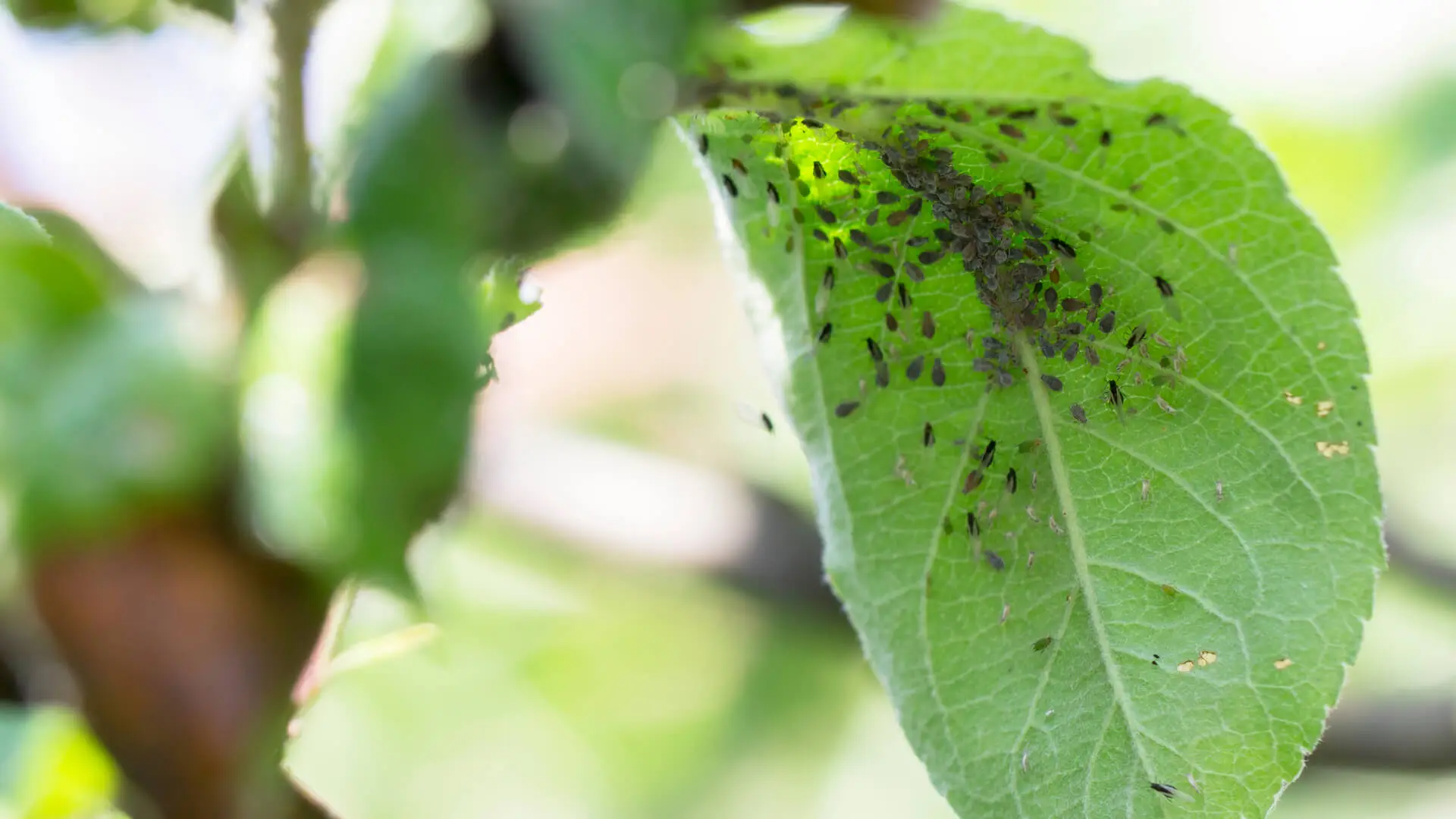All Texan homeowners have heard about aphids and their devastating effects on their properties. The biggest problem with aphids is that they are pretty resilient to insecticides and also to chemical treatments – this is why they are especially hard to get rid of once they comfortably installed on your turf. Our pest control Plano, TX specialists decided to offer you a short crash-course on aphids, their behavior and the organic measures you can employ to keep them at bay. Our experts are backed up by their lawn care Frisco, TX colleagues who also have a hard time in controlling aphids on the properties boasting with flowers and vegetation.
What Do Aphids Attack?
Aphids are insects that don’t usually discriminate, but which have preferences. While they love feeding on roses, they also negatively impact all bedding plants, pecans and oleanders, crape myrtle and hibiscus, almost all vegetables and also grasses. As we said, they are almost immune to pesticides and our pest control Plano, TX experts don’t recommend chemicals wholeheartedly, as the pesticides impact the sprayed plants and veggies more than they do aphids.
How Can You Tell You Have an Aphid Infestation on Your Property?
First and foremost you need to identify the aphids and differentiate them from other pests:
- Aphids are 1/16 to 1/8 inches insects
- They present a soft body and long legs
- They present antennae
They usually reside and hide under leaves and foliage, attacking older and newly grown plants altogether. Take your time to inspect leaves and foliage and notice the following symptoms:
- Leaves are yellow, curled and distorted without any apparent underlying reason
- New plants look underdeveloped
- There is a sticky black substance present underneath the leaves and foliage
If you lay eyes on this black sticky sooty substance, you do have an aphid infestation you need to control: the fungus is the root of all evils, as it blocks sunlight from reaching the plants, thus leading to the vegetation’s demise.
How to Get Rid of Aphids with Organic Methods?
Our pest control Plano, TX specialists recommend you look into the organic approach, as insecticides do more harm than good. There are a few tips and tricks you can employ to keep these catastrophic pests at bay:
- Beneficial insects and plants: if you attract aphids’ predators into the garden, you will have a natural way of preventing the pests to spread. Lacewings and ladybugs are natural aphid predators feeding with them constantly. Attract such beneficial insects with mint, fennel, dill, yarrow, and dandelions.
- Ant control: ants protect aphids, so they need to be kept at bay as well.
- Pressure watering: use a powerful hose to spray aphids-infected plants and vegetables – make sure the water pressure is high – aphids fall and their soot gets washed away. Repeat this procedure until you are sure the aphids are gone.
If the infestation is serious and simple organic measures don’t work, start fighting against aphids with the help of horticultural oils and insecticidal soaps. Your pest control Plano, TX experts are able to offer you competent advice on mixing and using such natural aphid deterrents.







